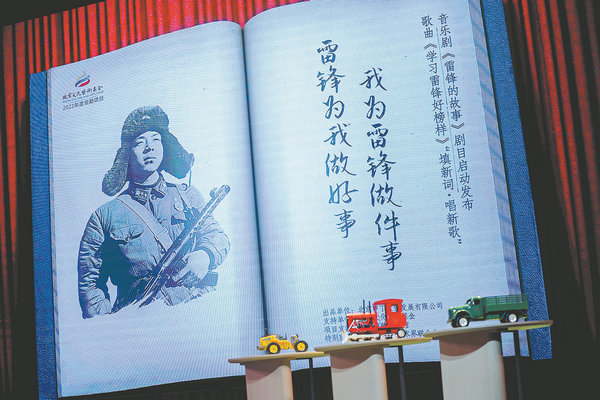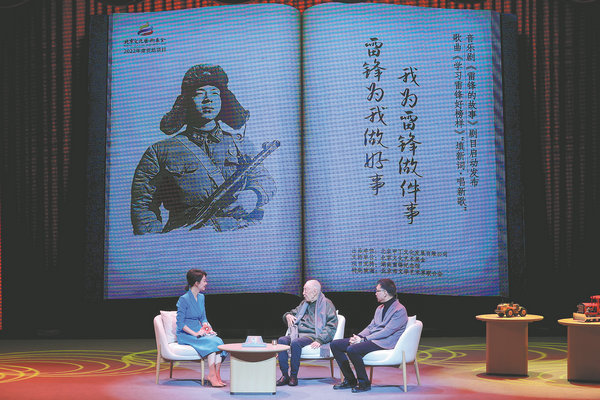

On March 5, 1963, an article by Chairman Mao Zedong was published in the newspaper, People's Daily, paying tribute to a young soldier, named Lei Feng, who died in an accident in 1962 at the age of 22. Since then, March 5 has been marked as "Learn From Lei Feng Day" and Lei has become a cultural icon, symbolizing selflessness, modesty and dedication.
Right after studying the article along with his colleagues that day, Wu Hongyuan, a songwriter who was then 33, was commissioned by the performing arts troupe that he worked for to write a song, echoing Mao's article and encouraging people to participate in the nationwide campaign to learn from the young soldier's spirit.
Within two hours, Wu, who is better known by his pseudonym, Hongyuan, finished writing the lyrics and gave it to his colleague, composer Lou Shengmao (1928-2007). The song, titled Xue Xi Lei Feng Hao Bang Yang, or Learn From the Role Model Lei Feng, soon became very popular in the country and has been performed by professional singers, as well as hitting a note with the general public.

On March 3, two days before the annual Learn From Lei Feng Day, Wu, 93 now, appeared in Beijing to announce a new project, calling for people to write their own versions of lyrics for the song, as a way to remind people, especially the younger generation, to keep the spirit of Lei alive.
"When I wrote the song, I was a young songwriter. I was very excited about the commission, but I didn't know where to start. So I took all the materials about Lei Feng that I could think of, such as newspaper reports, and I soon came up with the lyrics. The process was smooth and natural," Wu recalls.
"Like me, the composer also finished the song with ease. We had similar admiration and respect for the young soldier.
"After the founding of the People's Republic of China in 1949, the country began to develop quickly. There were many ordinary people making contributions to the country's development, whose stories became well known and made them role models," adds Wu, mentioning that, besides Lei, he was also touched and inspired by the stories of many people, such as Jiao Yulu, a county Party chief, who sacrificed his life in pursuit of poverty alleviation.
"As a songwriter, I wanted to write songs to express my respect and love for those heroes. So, when I started to write the song for Lei Feng, I was full of ideas and passion."
The songwriter has written more than 100 songs during his career and he regards the song about Lei as one of his favorites.
"I didn't expect that the song would be enjoyed by so many people and performed for 60 years. The longevity of the song proves that the spirit of Lei Feng has a lasting influence on people of different generations," he adds.
With the new project, Wu calls for people from all walks of life to interpret their understanding of the spirit of Lei, which received warm feedback. People, who work in different fields, such as transportation and delivery drivers, as well as young students, shared their versions of songs.